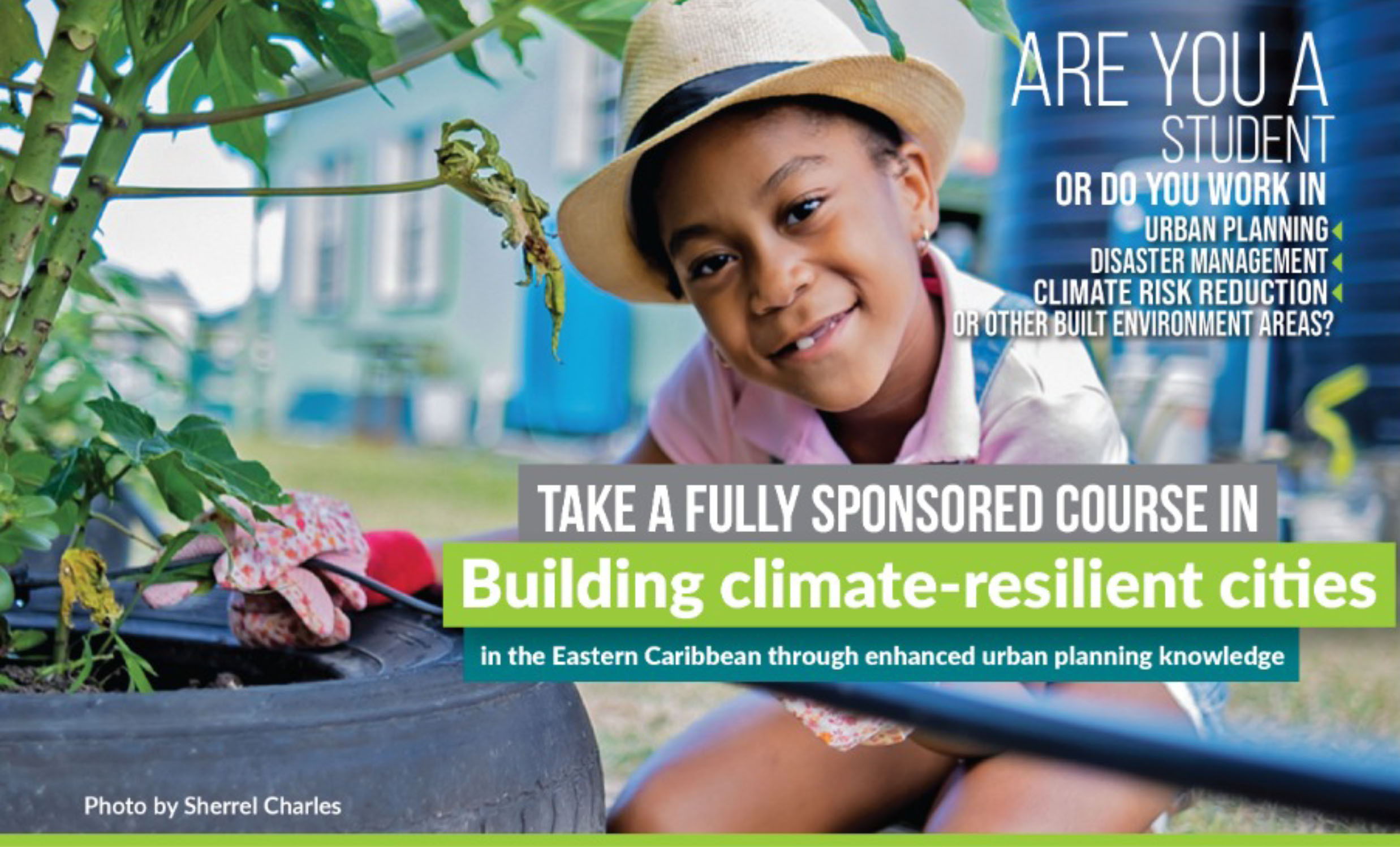Tailored Open Online Course: Building climate-resilient cities in the Eastern Caribbean through enhanced urban planning knowledge
Media Release
The OECS Commission is pleased to announce the opening of registration for a fully sponsored Tailored Open Online Course (TOOC) titled, “Building climate-resilient cities in the Eastern Caribbean through enhanced urban planning knowledge”. The AFD-funded project is being hosted by the University of Technology, Jamaica. The five-week online course will be launched on Wednesday, May 25, 2022 and will run from that date to June 30, 2022.
There is room for only 25 Caribbean participants, so individuals who are students or employees in urban planning, climate change, disaster management, risk reduction, etc., are encouraged to apply early at the following registration link: https://forms.gle/mDmuDFadepr5skkw6
The application period closes on May 13, 2022, and selected participants will be informed by May 15, 2022. Interested persons are encouraged to apply today to take advantage of this excellent tailored course. The course aim is to strengthen course participants’ knowledge base and increase their confidence in leading the implementation of urban planning strategies in ways that make their cities more climate-resilient.
The majority of the course content will be delivered online through pre-recorded lectures accessed at the participants’ convenience. These will be complemented by five one-hour live sessions (one per week for the first four weeks and two in the last week). The course is divided into four modules that address in a sequential manner, the content identified to reduce knowledge gaps in climate change and climate adaptation in the planning processes. The course starts with a review of urban and regional planning processes within the participating states, along with the review of theoretical concepts for sustainable planning and development, urban resilience, disaster risk reduction and climate change adaptation. It then moves into matters of equitable urban resilience, then to tools for climate risk assessment, then finally to integrated solutions for urban climate resilience.
At the end of the course, participants should be able to: articulate the needs of Eastern Caribbean States in relation to gaps in knowledge about climate change and its impact on urban planning; take more effective urban planning decisions to reduce climate change risks and build resilience in Eastern Caribbean cities; and critically assess key factors for consideration in climate change adaptation strategies in urban planning.
